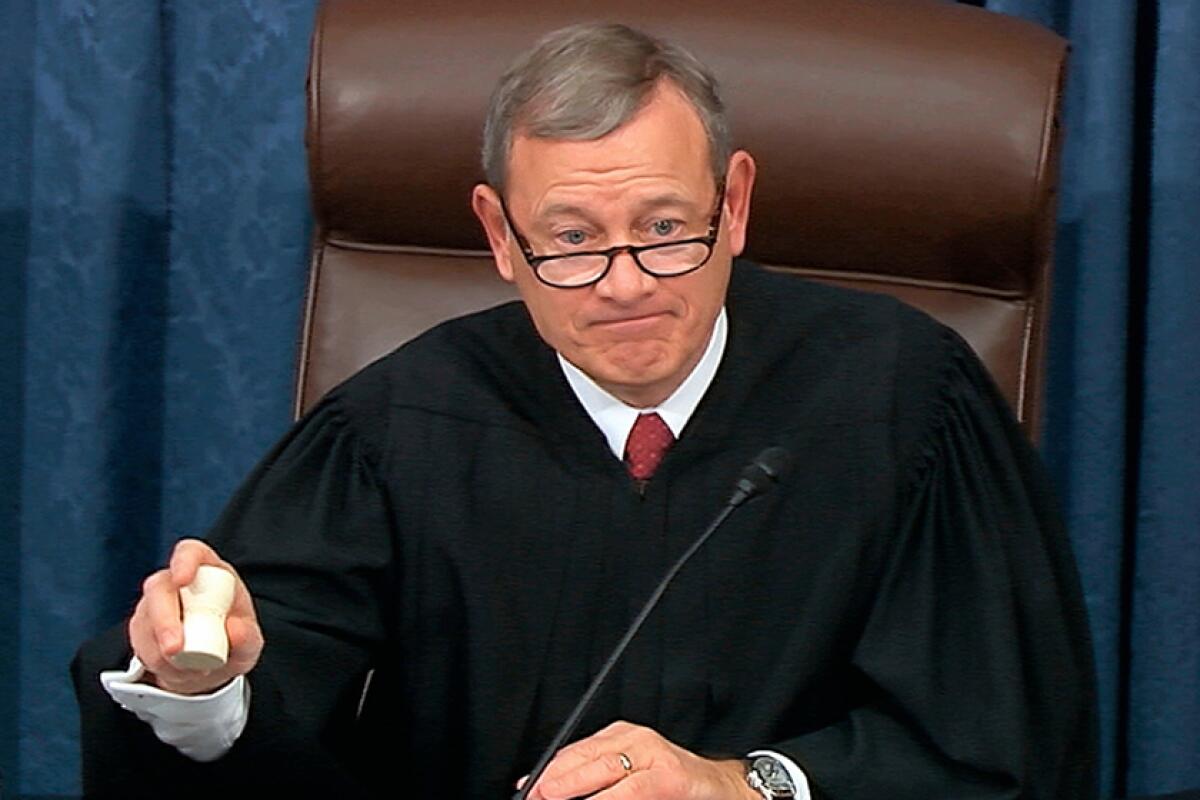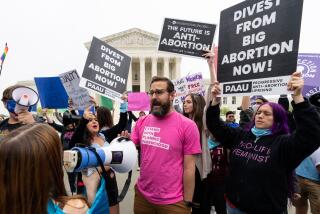Editorial: A narrow victory for religious freedom over gay equality

Advocates of equal rights for same-sex couples feared the worst when the Supreme Court agreed to hear the appeal of a Catholic agency that faced the loss of its city contract because it declined to work with gay and lesbian prospective foster parents. On Thursday, the justices ruled for the agency, but in a reassuringly narrow way that doesn’t create a gaping exception to anti-discrimination laws.
The court held that the city of Philadelphia violated the 1st Amendment rights of Catholic Social Services when it barred the agency from screening the parents. Citing its religious beliefs about marriage, the Catholic agency had refused to work with same-sex couples, though it was willing to refer such couples to other providers. (The agency also wouldn’t certify unmarried heterosexual couples as foster parents.)
The case of Fulton vs. City of Philadelphia, growing out of a lawsuit filed by Catholic Social Services and three foster parents affiliated with the agency, was viewed by religious conservatives and civil rights groups alike as potentially a major ruling on how the court would balance anti-discrimination protections for gays and lesbians with religious freedom. In prohibiting the Catholic agency from screening prospective foster parents, Philadelphia officials cited a city ordinance outlawing discrimination in public accommodations as well as nondiscrimination language in the contract.
Thursday’s ruling wasn’t the landmark decision some hoped for and others feared. The court ruled unanimously for Catholic Social Services, but the majority opinion by Chief Justice John G. Roberts Jr., joined by five other members of the court, focused narrowly on the facts of the case.
Roberts noted that Philadelphia’s standard foster care contract said that agencies couldn’t reject prospective foster parents because of their sexual orientation, but that it also allowed for exceptions from that policy at the “sole discretion” of a city official. By failing to provide a compelling reason for not providing such an exemption for Catholic Social Services, Roberts said, the city had violated the agency’s right to free exercise of religion.
The chief justice also said that Philadelphia’s ordinance prohibiting discrimination on the basis of sexual orientation in public accommodation didn’t apply to participation in the city’s foster care system. Certification as a foster parent, he wrote, “is not readily accessible to the public. It involves a customized and selective assessment that bears little resemblance to staying in a hotel, eating at a restaurant, or riding a bus.”
We continue to find it troubling that an agency that engages in discrimination can receive a contract from the government, even if the agency is motivated by sincere religious convictions. But this ruling could have been worse.
This is neither the first nor the last time the court will have to address the tension between anti-discrimination provisions and religious freedom, which is guaranteed not only by the 1st Amendment but also by state and federal laws, including the Religious Freedom Restoration Act signed by President Clinton in 1993.
In balancing those interests, the court must not allow religious freedom to become an all-purpose license to discriminate. Thanks to Roberts’ judicious approach, it stopped short of creating such a blanket exception in this case.
More to Read
A cure for the common opinion
Get thought-provoking perspectives with our weekly newsletter.
You may occasionally receive promotional content from the Los Angeles Times.










